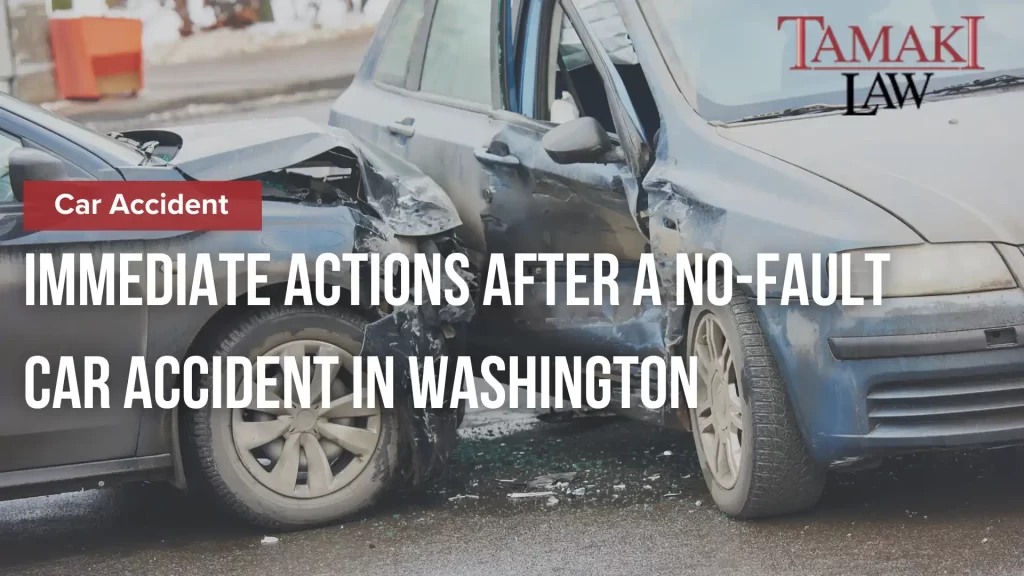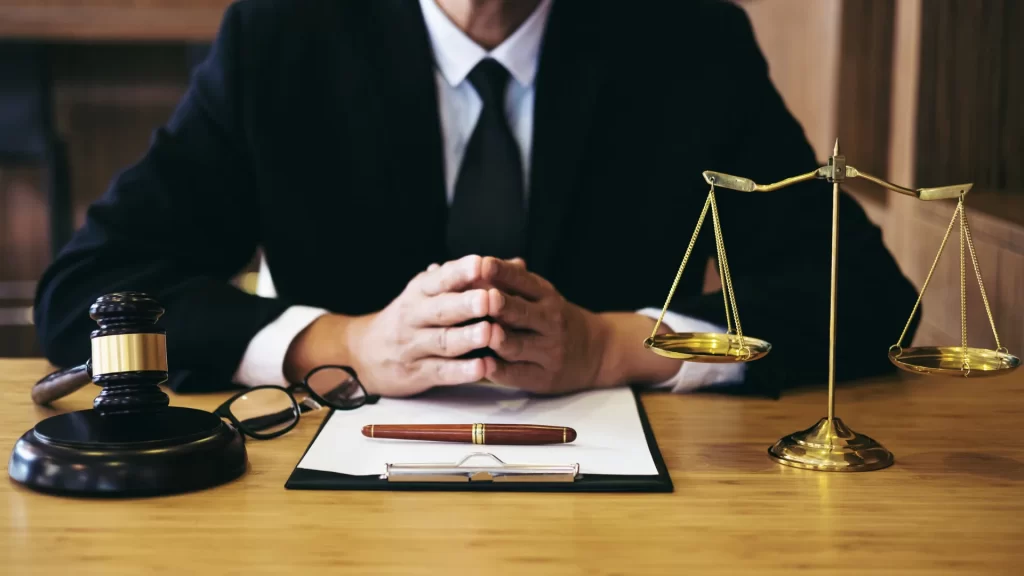
The shock of being in a car accident can be so overwhelming that many people do not know what steps they should take in the moments that follow. However, maintaining the presence of mind to protect yourself, address any injuries you might have, and preserve valuable evidence can make all the difference when you decide to seek compensation for your accident-related losses. A successful insurance claim can allow you to recover medical expenses, lost income, and compensation for the pain and suffering you have endured because of the crash. After all, if another party caused the crash, you should not bear the financial burden of the consequences. Here is what to do after an accident that is not your fault in Washington.
Move Yourself to a Safe Location
If your vehicle is still operational and it is safe to do so, move it to the roadside or a parking lot nearby. This will allow traffic to continue moving and help prevent accidents. If your car is not drivable, turn on your hazard lights and remain in the vehicle until help arrives. If you must exit the vehicle, be cautious of traffic and move to a safe location away from the road.
Provide First Aid as Necessary
Check yourself and any passengers for injuries. If anyone is hurt, call 911 immediately and request medical assistance. If you have basic first aid training, provide care to the best of your abilities until emergency services arrive. This may include applying pressure to wounds, immobilizing injured limbs, or keeping the injured person calm and comfortable.
Call the Police
Even if the accident seems minor and nobody appears to have sustained any injuries, calling the police is an essential step. Washington law requires you to report any accident that results in property damage of more than $1,000 or any injuries. However, injuries often remain hidden in the immediate aftermath of an accident, and the value of property damage can be challenging to assess at the scene, so you should summon law enforcement after any crash.
A police officer arriving at the scene will complete a police report. It will include information such as the crash’s date and location, the names of the drivers involved, and the officer’s initial assessment of who was at fault. When you file your insurance claim, this report will be among the most vital pieces of evidence you can provide.
Take Pictures of the Accident Scene and Property Damage
If it is safe to do so, use your smartphone to take photos of the accident scene from various angles. Capture images of the damage to all vehicles involved, any debris or skid marks on the road, and the surrounding area. These pictures can serve as valuable evidence when filing your insurance claim or pursuing legal action. If you have any visible injuries, take photos of those as well.
Collect Contact Information of the Other Driver and Witnesses
Get the insurance and contact information of the other drivers or drivers involved in the accident. This should include their:
- Full name
- Phone number
- Address
- Driver’s license number
- Vehicle make and model
- License plate number
- Insurance company and policy number
If there are any witnesses to the accident, ask for their contact information as well, as their statements may be helpful when establishing fault.
Contact the Insurance Company
Notify your car insurance company of the accident as soon as possible. Most policies require timely reporting of accidents, and failure to do so could jeopardize your coverage. When speaking with the insurance representative, provide a factual account of what happened, but refrain from admitting fault or apologizing for the accident, as your statements could be used against you later.
In many cases, the at-fault driver’s insurance company may contact you soon after the accident, especially if they know their driver is at fault. They might frame this conversation as a “courtesy call” to see how you are doing, but it is essential that you do not engage. Insurance adjusters have many clever tactics to deceive unsuspecting accident victims into admitting fault. If the other driver’s insurance company contacts you, politely refuse to give a statement and refer them to your attorney instead.
Consult with a Knowledgeable Car Accident Lawyer
 While many accident victims attempt to file compensation claims on their own, those who work with an experienced legal professional tend to have more success recovering the fair compensation they deserve. A skilled attorney can:
While many accident victims attempt to file compensation claims on their own, those who work with an experienced legal professional tend to have more success recovering the fair compensation they deserve. A skilled attorney can:
- Investigate the causes of the accident to determine who was at fault
- Calculate the total value of your accident-related losses
- Negotiate with the insurance company to secure a settlement that will make you whole
- Take the at-fault party to court if the insurer is unwilling to offer you the compensation you deserve
In essence, your attorney will handle every aspect of your claim while you focus on healing. However, time is of the essence. The sooner you call a lawyer, the sooner they will be able to collect evidence before it disappears and interview eyewitnesses before their memories fade.
Contact an Experienced Washington Car Accident Attorney Today
The moments and days after suffering injuries in a car accident can be among the most overwhelming times in your life. When the accident occurs due to the negligent or aggressive actions of another party, you probably feel a profound sense of injustice. After taking all the necessary steps to protect your well-being and preserve evidence, working with an experienced traffic collision attorney can help you optimize your chances of recovering the compensation you deserve.
The seasoned Washington State car accident lawyers of Tamaki Law have been representing injured individuals since 1994. Our team has a thorough knowledge of personal injury law and a proven track record to back it up. Our attorneys will aggressively fight to prevent insurance companies from taking advantage of you at your most vulnerable moment. Call us today at (800) 801-9564 or contact us via our online form for a free consultation to learn more about how we can help you.
Related Posts:
Rental Car Cost Coverage After An Accident In Washington Explained
